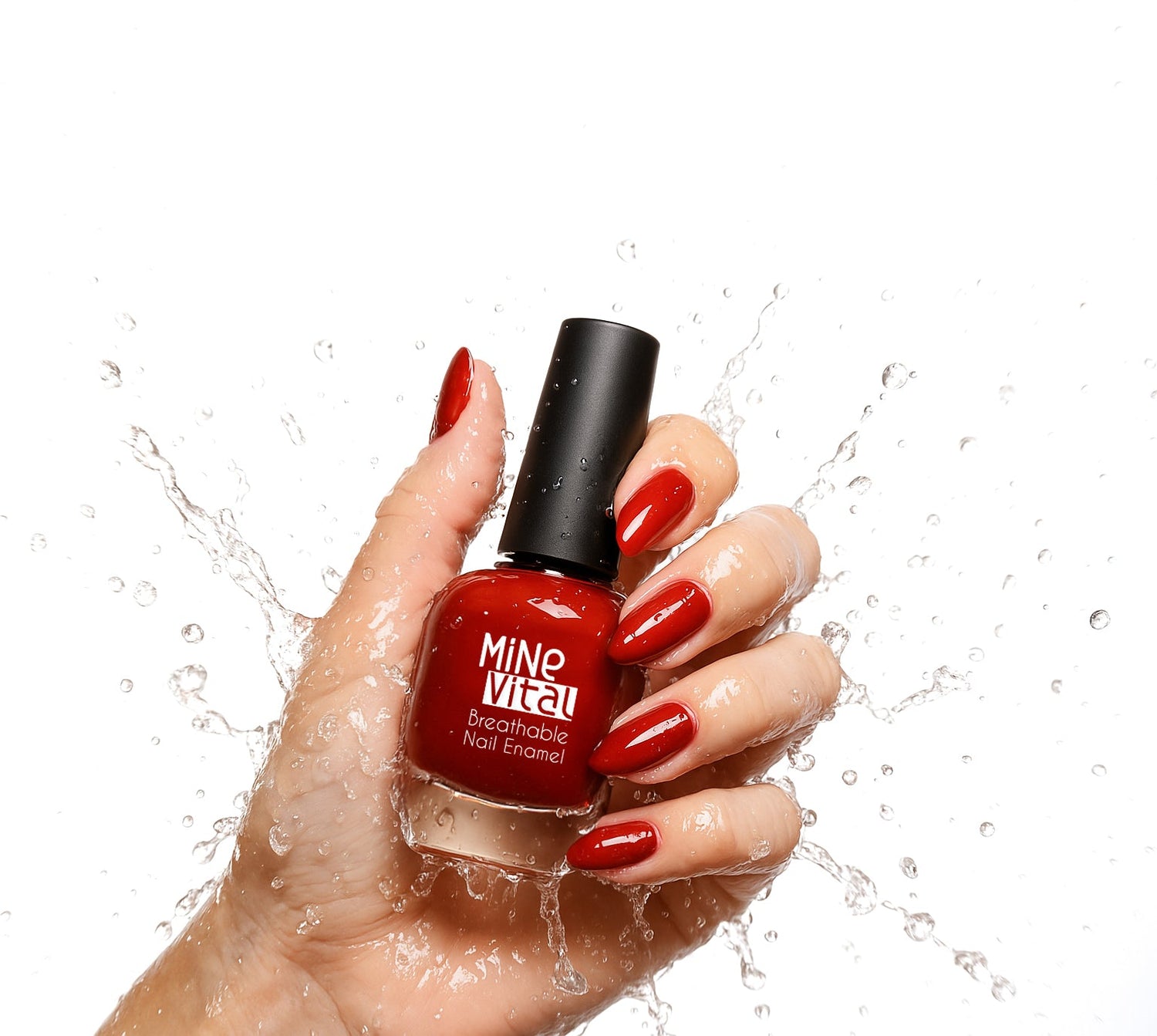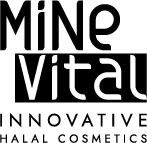About Breathability
Breathable Nail Polish Technology: Where Science Meets Beauty
MineVital Breathable Nail Polish represents a scientific innovation that blends beauty with wellness and faith-conscious living. Its special chemical structure enables both air and water molecules to reach the nail surface — making it ideal for health, hygiene, and religious practices.
How Does It Work?
Unlike traditional nail polishes, MineVital uses thermoplastic polymers that create amorphous regions—microscopic openings that act as breathable channels. This allows water and oxygen to pass through the polish, while keeping color and shine intact.
The Role of Polyolefin Plastomer (POP)
One of the key ingredients is Polyolefin Plastomer (POP), a next-generation polymer known for stable and long-lasting permeability. POP is also used in:
- Hygienic baby diapers
- Breathable shoe membranes
- Medical textiles
- Food packaging
- Breathable construction materials (e.g., roof insulations)
Combined with Polyethylene (PE), the formula maintains open airflow channels and prevents the collapse of breathable paths over time.

Inspired by Proven Breathability Systems
The breathable technology is inspired by well-established systems such as:
- Moisture-wicking athletic wear
- Hydrogel contact lenses
- Medical-grade breathable tapes
- Porous tiles and eco-asphalt
- Breathable paint and insulation materials
Health & Religious Compatibility
This is more than just a cosmetic product — it contributes to nail wellness and is compatible with Islamic practices:
- Helps prevent yellowing and nail weakening
- Allows water to reach the nail for wudu (ablution)
Scientifically Tested
MineVital Formula F6345 was independently tested by a world leader in product certification & tests.
Comparative tests on 5 shades across three brands including MineVital F6345 formula revealed:
-
MineVital demonstrated 17% higher breathability from closest rivals
- Formula free from:
- Dibutyl phthalate (DBP)
- Toluene
- Formaldehyde & its resin
- Camphor
- Xylene
- Ethyl tosylamide
- Parabens


